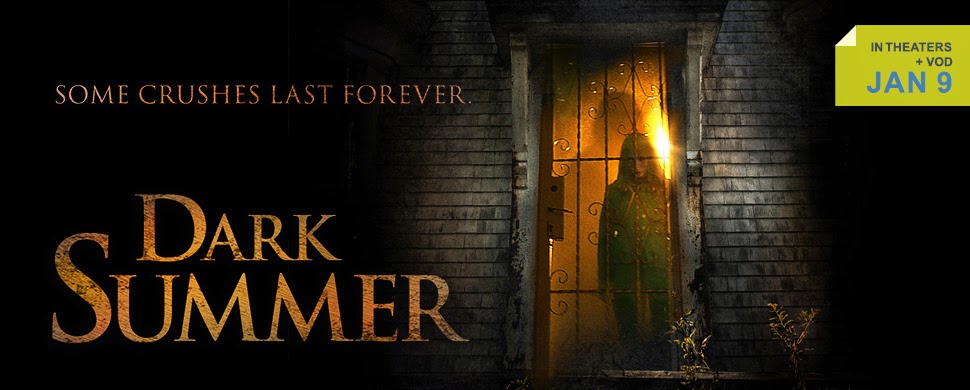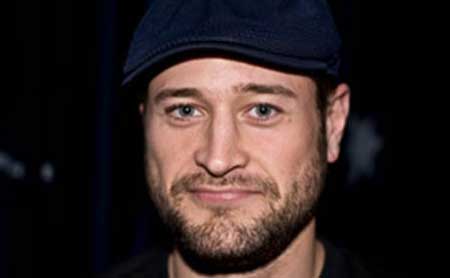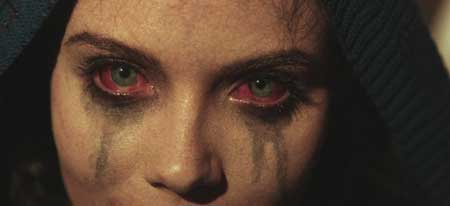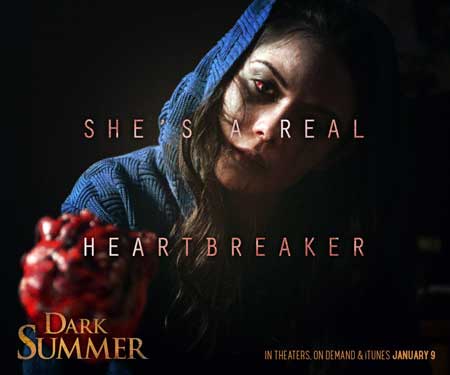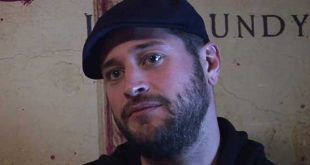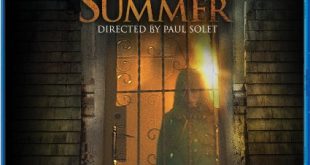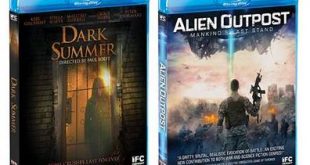Daniel Austins (Keir Gilchrist) obsessive online stalking of his classmate and crush, Mona Wilson (Grace Phipps), leads to his house arrest for the whole summer. Daniel is a modern technology obsessed teenager. So now he will spend his summer vacation with; no cell phone, no Internet, no access to the world beyond his property, and perhaps most devastating of all no Mona .
Chris Maynard: I just watched the film (Dark Summer) last night and I did it as a double feature with Grace and the first thing I noticed is how tonally different the films are. Is that something you were conscious of when choosing this project?
Paul Solet: In the time since Grace was released the film business has changed a lot. I have been attached to a number of projects, some of them being bigger projects but for one reason or another they just din’t come together. So, I’ve been writing and writing for hire and practicing my craft, waiting for the right script to come along. This one (Dark Summer) is interesting. Its not typically the type of material that I respond to but there was something about this project that I really loved. Firstly the team is great. The producer Ross Dinerstein is someone who I know and love. We pitch back forth all the time. So when he brought me the script and we gonna make it and you can do whatever you want to do all long as stays within certain production guidelines. When I read the script there were certain things that I really plugged into. The most exciting thing was this notion of, what is it like to be a teenager? Its a universal thing and those are the things that I’m really attracted to in a story. I’m drawn to things that you can’t help but to plug into as a viewer. When you are a teenager everything feels so big and the stakes are so high and everything thing seems to vibrate with this intensity.
Chris Maynard: Absolutely.
Paul Solet: That to me is a thematic notion. That is something that can inform your choices as a director, as a filmmaker. Whether its visually, whether it’s sonicly, there’s a sense that there is this vibrating intensity. I was really excited about bringing that to life. I also loved that there were some twists in the movie that were a lot of fun… I didn’t see those story cards turning. The other thing that grabbed me was the atmosphere. There is a kid who is extremely isolated, and you can show this kind of elmreald green, oppressive condition of it. We don’t know exactly what the source of it is but there is this siren song pulling him somewhere and we don’t where it is. That was just incredibly interesting to me. I felt like between those things the thematic and the cinematic, it sort rose above story. This very rarely happens for me, I tend to be very story conscious. I write to pay bills. I’m pretty unforgiving of that stuff but with this I felt like the work to be done was much more about those inter personal relationships and keeping each individual theme and exploring that with this cast.
Chris Maynard: The lead in the film Keir Gilchrist was fantastic. How did you find him? Were you familiar with him from prior work?
Paul Solet: I read everyone for all these roles. It was a long process and at the very end of this process Keir and I met. And I just loved him. I knew within two minutes of meeting the guy that he was my guy. I was determined to cast people were real. When I was 15, when I was 18 I didn’t feel like a kid. We didn’t talk like kids. In many ways we didn’t act like kids. By and large I did not approach them like they were teen roles. I approached them like they were real kids. This is an exceptional cast. They are really stellar. Keir is unbelievable Maestro Harrell from The Wire, Grace Phipps is a phenomenal star, Stella Maeve is just… you can’t help but love Abby.
Chris Maynard: She was fantastic.
Paul Solet: Wasn’t she.
Chris Maynard: You feel for her right away and its all performance based and this whole film is performance based. That also goes for your other film Grace that I think was somewhat over looked because of the more shocking elements, people didn’t take notice of how strong the acting was in that film. This fits right in with that because this is a performance piece first and the scares that come along are more secondary. Is that how you approached the material, humanity first and the more creepy elements as a secondary?
Paul Solet: Thank you and well put. I have to approach everything from the human standpoint. If you don’t care about the people, if you care about their plight then you won’t care about what’s happening to them and it doesn’t matter, there are no stakes. I have been watching horror movies since I was a little kid and I live and breath horror movies.
Chris Maynard: What was the first horror movie that got to you?
Paul Solet: The first horror movie that really devastated me was Alien. That movie just demolished me as a kid. But what I was saying was that I have to care about them. I feel like If I care about them, the scares will evolve from the stakes. So yeah definitely you have to start with the human stuff.
Mike Denniston: Part of the scares in this film came from the fact that our main character is so isolated and does lend itself to almost an unreliable narrator. I questioned him as far as is this something that is actually happening to him. How far did you want to push that idea that what were seeing is not totally true?
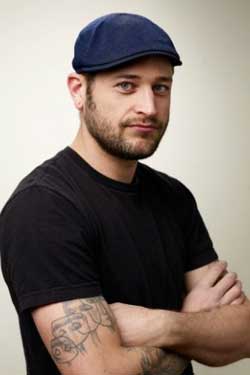 Paul Solet: Again, really well put. That’s a really big part of the first half of the movie. Where you should be questioning, how trust worthy is this narrator? Keir has his work cut out for him in addition to that he’s behind the eight ball for a lot of this movie. He’s done this thing that’s not a horrible thing but its sort of creepy. Its the kind of thing where those moments with his friends, they are looking at him and asking how did this person that I know so well do this thing?
Paul Solet: Again, really well put. That’s a really big part of the first half of the movie. Where you should be questioning, how trust worthy is this narrator? Keir has his work cut out for him in addition to that he’s behind the eight ball for a lot of this movie. He’s done this thing that’s not a horrible thing but its sort of creepy. Its the kind of thing where those moments with his friends, they are looking at him and asking how did this person that I know so well do this thing?
Mike Denniston: Its a credit to his performance that he maintains his likability. That everything we know about him seems untrustworthy but we do go along with him on this journey so that’s a credit him and your direction as well.
Paul Solet: Thanks. These guys were so good. Keir is one of the finest actors I’ve ever worked with and just incredibly wise beyond his years and someone I would really like to work with many years to come and that goes for every single member of this cast. I know people say that but I really do mean it. We really worked hard to find them and it was just a terrific team. I felt like these kids had known each other forever and they had so much history together. They really elevated everything they touched. Of course that goes for Peter Stormare as well. He’s someone that I’ve been a huge fan of for years. That was a role (Stokes) in less talented hands could have been a little more familiar. But Peter is always working in a way that there is so much below the surface, on every single take you are getting something that is just terrifically interesting. He’s the kind of person that you just have a grin on your face behind the monitor during every single take. I’m sure there is just a ton of footage of me just grinning watching him work.
Mike Denniston: He brings a great presence to the film because he is the true outsider. He brings something darkly comedic to role and I really enjoyed him.
Paul Solet: I’m so glad you did. He brings levity even when he’s slightly terrifying. He can be a genuinely intimidating presence and is remarkable with other actors. You get the sense that he is something of a savant at his job. He sort of has this sense about who’s lying, who’s right and who’s wrong. When he meets Daniel (Keir Gilchrist) he knows something is off. He’s this finely calibrated officer that’s not a detective proper but he is a detective. I think he’s intrigued and a little bit amused.
Chris Maynard: Another thing I wanted to touch on outside of the performances in the film, is the underlying theme of technology and specifically social media as an underlying theme of the film. Was that something that attracted you to the project?
Paul Solet: It was. I am semi-fascinated by the ways that all these new forms of communication are affecting the ways we have inter personal relationships. The pace of which we have them, the intimacy that we have within them, the brevity of some of these communications and the economy of some these communications. I find it incredibly interesting. I historicly have been pretty weary of stories that have so much technology in them that they have a really short shelf life. But with this I felt there was an opportunity to build a kind of time capsule in a way. It would be fun to just do it in a way that was just so authentic in every detail that looking at in ten years from now it would play almost as a period piece.
Chris Maynard: There was something smart in the film that stood out, you chose to use the actual technology of our time. A great number of movies use imitations of our technology and it can be distracting. How did you get clearance to use all the different IPs that you show in the film?
Paul Solet: I’m not sure how we got clearances but I know how we did it practically. I had this amazing Art Intern who I literally thought was the Art Director he was so good. Its this guy Billy Jackson. He was 22 years old, just out of film school and he was the intern at the beginning of the production and by the end of production he was the… I can’t remember what we credited him as but he was managing all the multi-media platforms. He was the media technician through out the movie. We literally just did it all live. Part of that is because we were making the movie so quickly. But we would habe Abby in one room and Keir in another and Grace in another and just ran it. We did it live. Grace just did… I won’t give any spoilers. All the graphics, all the elements you see on screen that’s all Billy and this incredible Art Department that Ariana Nakata ran.
Chris Maynard: They did a great job with it.
Paul Solet: Weren’t they amazing. Ariana Nakata was the production designer and her whole team went to the walls for this movie. They created so much texture and such a rich environment, in particular the third act of the film. You had a couple of my favorite artist step up and contribute. We had Ron Pippin, Jason Shaun Alexander and other fine artists, so between them and the Art Department the texture in that world was just so… you would just walk on set and it was there. The work we had to do was very clear, it was with my closest collaborator Zoran Popovic (director of photography) we had to look at the tone and the atmosphere, it was very clear how this wanted to be treated and that went back to what was the perspective of our protagonist.
 Horror News | HNN Official Site | Horror Movies,Trailers, Reviews
Horror News | HNN Official Site | Horror Movies,Trailers, Reviews
